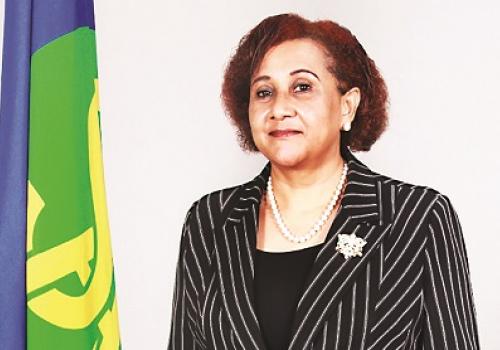Today, 8th March 2020, the Southern African Development Community (SADC) joins the international community in commemorating the International Women’s Day 2020. This year’s commemoration is under the theme “I am Generation Equality: Realizing Women’s Rights”. This theme is concerned about advancing gender equality and promoting women’s rights in line with the commitments of the Beijing Declarations. It is a conglomeration of the next generations of women’s rights activists with the gender equality advocates and visionaries who were instrumental in creating the Beijing Platform for Action more than two decades ago. The theme buttresses that collectively, these change makers of all ages and genders can tackle the unfinished business of empowering women through a new, groundbreaking, multigenerational campaign: “Generation Equality: Realizing women’s rights for an equal future”. The commemoration gives us a unique opportunity to reflect on the progress made in addressing gender inequality and inequity in the SADC region.
Gender equality remains a priority in the SADC region, and significant progress has been made in addressing the factors that hinder attainment of equality between men and women, boys and girls, since the adoption of the SADC Protocol on Gender and Development in 2008. For example, in the area of women’s representation and participation in politics and decision-making processes, selected Member States such as Angola, Mozambique, Namibia, Seychelles, South Africa, Tanzania and Zimbabwe have significantly increased women’s representation in their respective parliaments as a result of a raft of measures that they have put in place at national level.
In addition, SADC Member States continue to make good progress in ensuring access to education by women and girls through effective policy measures, such as the globally-acclaimed Education For All (EFA) movement, and using affirmative action in the education sector, which has effectively improved enrolment of girls in schools. In this regard, gender parity in enrolment has been reached in schools.
Notwithstanding the progress that has been made, challenges continue to hamper efforts to attain gender parity particularly in the political sector, and women continue to experience inequalities in different spheres of life. For example, their representation in politics and decision making processes remains below the regional targets as agreed by Member States when the Gender Protocol was adopted, as the regional average remains below the aspired parity, standing at 23.2% in 2018.
This year’s commemoration also coincides with the 20th anniversary of the United Nations Security Council Resolution 1325 on Women, Peace and Security. All SADC Member States are bound by the UNSCR 1325, and subsequent resolutions that were adopted by the UN Security Council since 2000, in order to reduce sexual and gender-based violence including in conflict and post-conflict situations.
I, therefore, call upon Member States to fully capacitate their respective structures and enhance implementation of the gender equality commitments that they committed to at regional, continental and global levels; challenge gender norms; break gender stereotypes; address gender based violence; and achieve a world where all people have equal rights and opportunities.
| Attachment | Size |
|---|---|
| Statement_by_SADC_Executive_Secretary__-_International_Womens_Day_2020.pdf | 435.33 KB |

